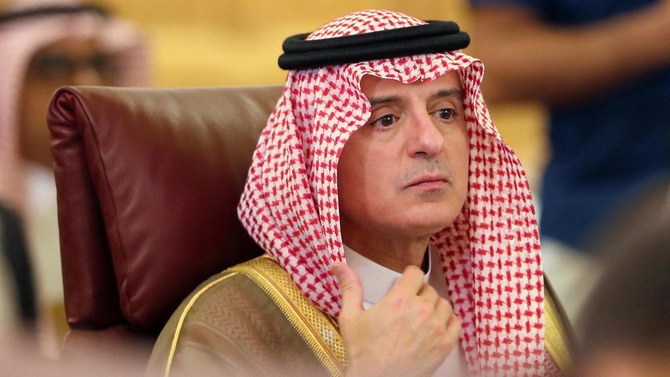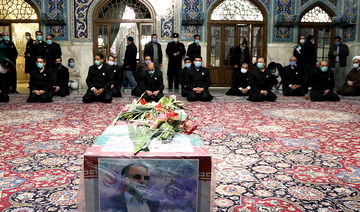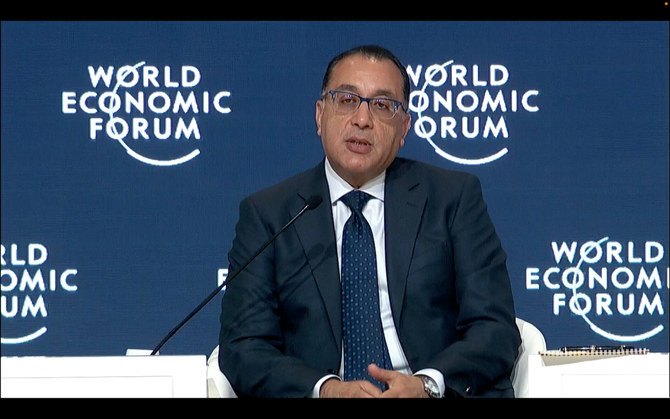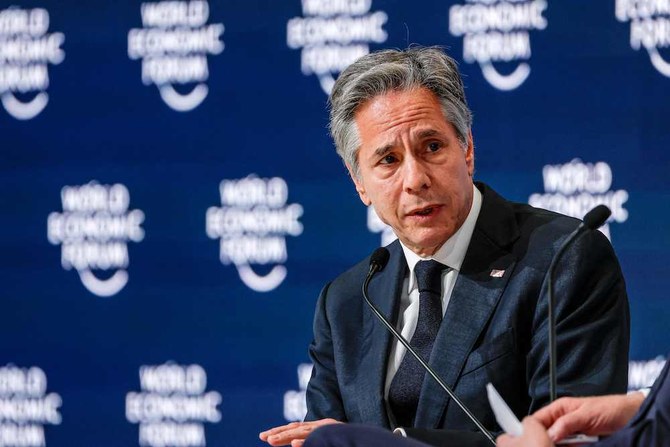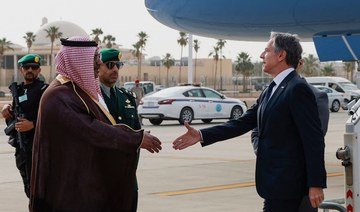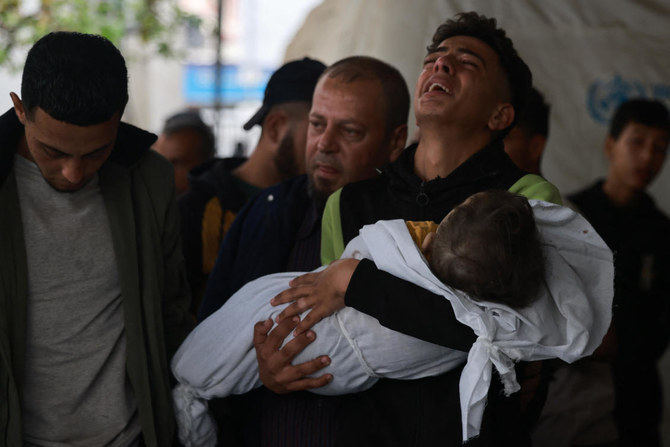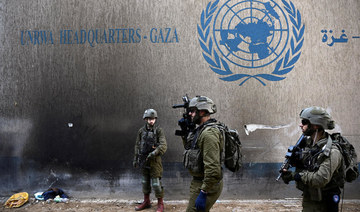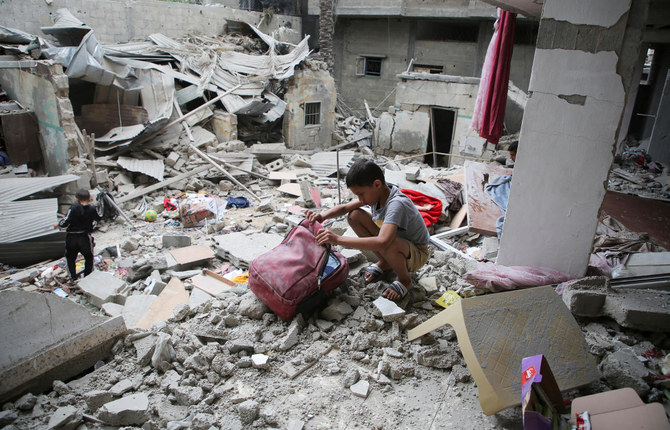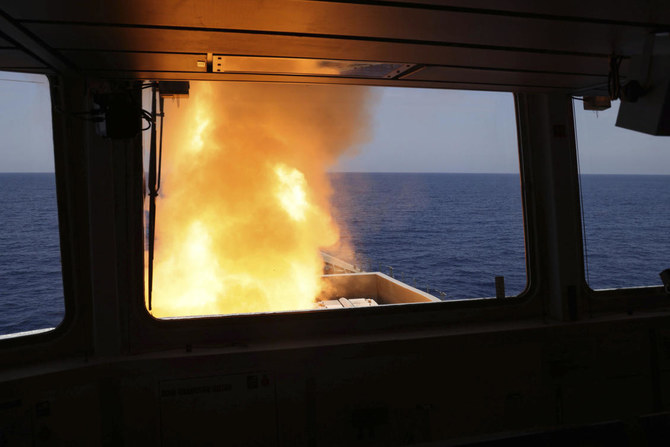JEDDAH: Iran’s parliament on Tuesday approved a bill requiring the government to boost uranium enrichment by 20 percent and end UN inspections of its nuclear facilities.
The move is being viewed by analysts as a show of defiance after the recent killing of prominent Iranian nuclear scientist Mohsen Fakhrizadeh, an assassination for which Tehran has accused other countries of masterminding.
Saudi Arabia’s Minister of State for Foreign Affairs Adel Al-Jubeir said on Tuesday that Iranian Foreign Minister Mohammed Javad Zarif was “desperate” to blame the Kingdom for anything negative that happened in Iran.
“Will he blame us for the next earthquake or flood?” he tweeted. “It is not the policy of Saudi Arabia to engage in assassinations; unlike Iran, which has done so since the Khomeini Revolution in 1979.
“Ask us and ask many other countries who have lost many of their citizens due to Iran’s criminal and illegal behavior,” Al-Jubeir added.
The latest bill would require another parliamentary vote to pass, as well as approval by the Guardian Council, a constitutional watchdog. Moreover, Supreme Leader Ayatollah Ali Khamenei has the final say on all nuclear policies.
“There is no doubt that this step constitutes a threat, raising it to 20 percent means that it is close to building a nuclear bomb,” political analyst and international relations scholar Dr. Hamdan Al-Shehri told Arab News. “The region is promised with a dark and unstable period.”
He said that the move indicated the Iranian regime’s insistence on destabilizing the region, and its determination to win the race to obtain nuclear weapons.
Enriching uranium to 20 percent is below the threshold needed for nuclear weapons but higher than that required for civilian applications. It would also commission new centrifuges at nuclear facilities at Natanz and the underground Fordo site.
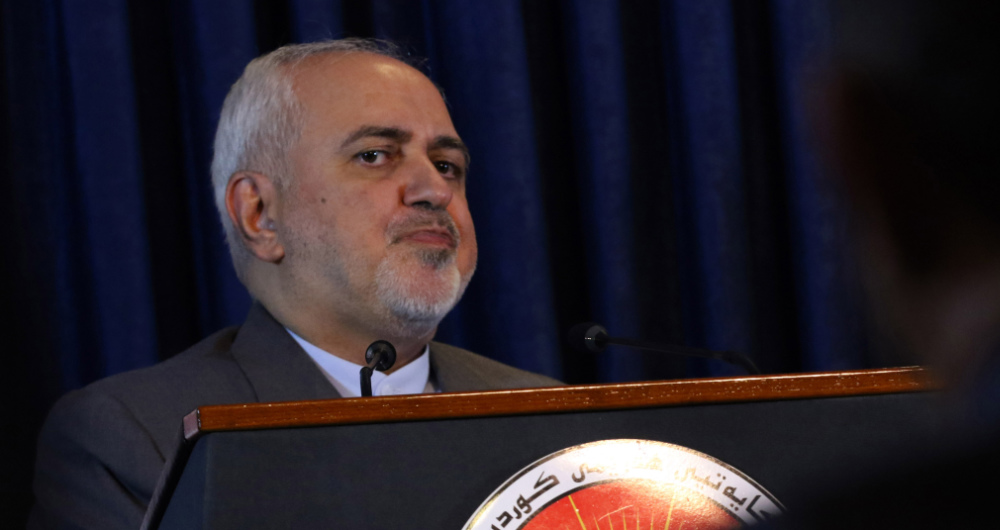
Iranian Foreign Minister Mohammed Javad Zari. (AFP)
“Iran’s acquisition of nuclear weapons or its proximity to achieving that goal will be a great danger to the region, and countries will seek to protect themselves, which will mean that everyone will resort to obtaining nuclear weapons. Fakhrizadeh’s death suggests that Iran was waiting for this opportunity to escalate,” Al-Shehri added.
The official IRNA news agency said 251 lawmakers in the 290-seat chamber voted in favor, after which many began chanting slogans against the US and Israel.
The bill would give European signatories to the 2015 nuclear deal three months to ease sanctions on Iran’s key oil and gas sector, and to restore its access to the international banking system.
“Many technical issues related to the nuclear bomb creation were not closely followed up by P5+1 (the UN Security Council’s permanent members of China, France, Russia, the UK, and the US, plus Germany),” said Al-Shehri.
“We also should not forget that Iran was not clear and was preventing and limiting inspections at its nuclear facilities, moreover, the International Atomic Energy Agency did not do its work properly so that the world could breathe easily.
“Iran may have the nuclear bomb by now without the international community taking any action against it.
“The assassination of a scientist will not change the equation, even the strikes on Iranian facilities would not affect the real Iranian infrastructure.
“Iran wasn’t confronted the way that would make the world comfortable, nor the way that a terrorist rogue state should have been treated as it distributed terrorism through its militias, ballistic missiles, and drones in the region,” he added.



